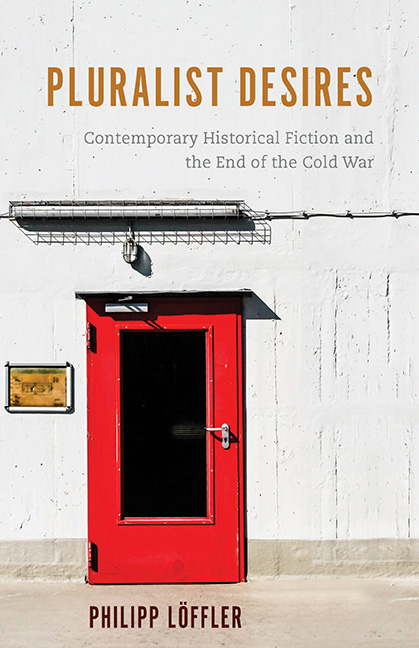Book contents
- Frontmatter
- Contents
- Acknowledgments
- Introduction: Saving Private Ryan, the End of the Cold War, and the Value of Historical Experience
- 1 The Uses of History: From Nineteenth-Century Historicism to Twenty-First-Century Pluralism
- 2 “No Longer and Not Yet”: Don DeLillo and the Aftermath of the Cold War
- 3 After Race: Body Language and Historiography in Toni Morrison's Beloved and A Mercy
- 4 “A Singular Act of Invention”: Storytelling, Pluralism, and Philip Roth's American Trilogy
- 5 Lukácsian Aesthetics, Self-Creation, and Richard Powers's Plowing the Dark
- Epilogue
- Notes
- Bibliography
- Index
4 - “A Singular Act of Invention”: Storytelling, Pluralism, and Philip Roth's American Trilogy
Published online by Cambridge University Press: 05 February 2016
- Frontmatter
- Contents
- Acknowledgments
- Introduction: Saving Private Ryan, the End of the Cold War, and the Value of Historical Experience
- 1 The Uses of History: From Nineteenth-Century Historicism to Twenty-First-Century Pluralism
- 2 “No Longer and Not Yet”: Don DeLillo and the Aftermath of the Cold War
- 3 After Race: Body Language and Historiography in Toni Morrison's Beloved and A Mercy
- 4 “A Singular Act of Invention”: Storytelling, Pluralism, and Philip Roth's American Trilogy
- 5 Lukácsian Aesthetics, Self-Creation, and Richard Powers's Plowing the Dark
- Epilogue
- Notes
- Bibliography
- Index
Summary
Philip roth's american trilogy became a contemporary classic within the first years after its completion. American Pastoral (1997), I Married a Communist (1998), and The Human Stain (2000) have been received enthusiastically by a hybrid readership that stretches from the halls of academe to Oprah, and the sales figures of each book reflect similar popularity. The trilogy's centrality in contemporary literary culture— both popular and academic—arguably has to do with Roth's interest in a specific variety of “the high cultural pluralist enterprise” that has shaped postwar American literature since the 1960s. Roth's pluralism is less explicitly political than it is philosophical, pragmatist in tenor and particularly Jamesean in its conception of the human self. The trilogy highlights this interest on several levels. Roth acknowledges the variability of individual and collective subject positions at the same time as he endorses American history as a necessary vehicle for the transmission of the trilogy's pluralist concerns. All three novels are primarily focused on American Cold War history. But they also feature a set of identity hotspots (for example, American Jewishness, racial passing, or the limits of national histories) that inevitably transcend the immediate historical contexts by which they are triggered. Even though it expresses a very specific historiographical interest, the trilogy in fact highlights a general theoretical problem at the junction of historical writing and identitarian self-fashioning.
Interestingly enough, however, when critics speak about the trilogy, they mostly mean American Pastoral and The Human Stain, not knowing exactly what to do with I Married a Communist. But why? Why is it that critics seem to have trouble locating I Married a Communist in relation to its companion pieces? What accounts for the novel's seeming recalcitrance? One problem is the protagonist, Ira Ringold, who many readers think is not a very interesting man, a flat character indeed, who is simply not refined enough to reaffirm the pluralist discourse the trilogy as a whole represents. Hence they have quickly dismissed Ira as a stereotypical loser, a narrow-minded idiot who fails in all areas of life (job, politics, marriage, and family). Mark Shechner puts it very bluntly, claiming that “Ira is the most unreflective of all Roth's unreflective characters—one that makes the Swede look like Marcel Proust in comparison.”
- Type
- Chapter
- Information
- Pluralist DesiresContemporary Historical Fiction and the End of the Cold War, pp. 97 - 126Publisher: Boydell & BrewerPrint publication year: 2015



